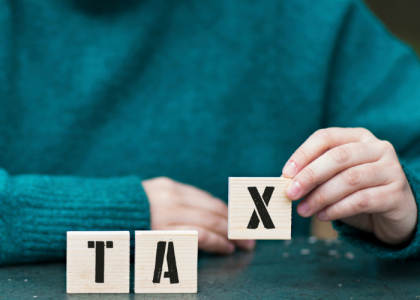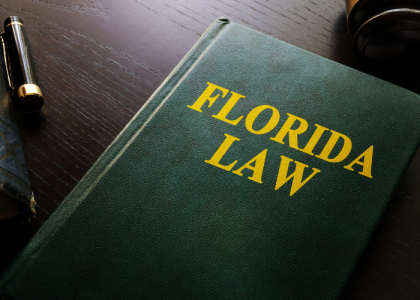Here is a look at the top tax news announced this week due to the Coronavirus pandemic.
TODAY, March 20: Treasury Secretary Steven Mnuchin announced Friday that the administration has moved the IRS deadline for filing taxes from April 15 to July 15 due to the disruption caused by the coronavirus.
The new deadline will give millions of taxpayers more time to fill out their tax forms as coronavirus upends daily life across the country.
Mnuchin made the announcement on Twitter, citing President Trump’s directive.
“At @realDonaldTrump ’s direction, we are moving Tax Day from April 15 to July 15,” Mnuchin said. “All taxpayers and businesses will have this additional time to file and make payments without interest or penalties.”
The Treasury Department had previously announced $300 billion in delays to tax deadline payments. It had been reluctant to postpone the deadline for filing as well, in part because doing so may result in fewer Americans getting their tax refunds at a weak moment for the American economy.
WEDNESDAY, March 18: IRS Pushes Back Tax Payment Deadline for Individuals, Businesses. The new deadline for tax payment is July 15. The filing deadline will remain April 14.
Individuals and businesses now have more time to pay their taxes, a step the IRS and Treasury are taking to soften the blow of the Covid-19 pandemic.
The new deadline for tax payments is July 15, Treasury and the IRS announced Wednesday. The filing deadline will remain April 15.
• Individuals: Income tax payment deadlines for individual returns, with a due date of April 15, 2020, are being automatically extended until July 15, 2020, for up to $1 million of their 2019 tax due. This payment relief applies to all individual returns, including self-employed individuals, and all entities other than C-Corporations, such as trusts or estates. IRS will automatically provide this relief to taxpayers. Taxpayers do not need to file any additional forms or call the IRS to qualify for this relief. This relief also includes estimated tax payments for tax year 2020 that are due on April 15, 2020.
• “Americans should file their tax returns by April 15 because many will receive a refund. Those filing will be able to take advantage of their refunds sooner,” said Treasury Secretary Steven Mnuchin.
• For C-Corporations, income tax payment deadlines are being automatically extended until July 15, 2020, for up to $10 million of their 2019 tax due.
• Penalties and interest will begin to accrue on any remaining unpaid balances as of July 16, 2020. If you file your tax return or request an extension of time to file by April 15, 2020, you will automatically avoid interest and penalties on the taxes paid by July 15.
• “The IRS reminds individual taxpayers the easiest and fastest way to request a filing extension is to electronically file Form 4868 through their tax professional. Businesses must file Form 7004.”
• This relief only applies to federal income tax (including tax on self-employment income) payments otherwise due April 15, 2020, not state tax payments or deposits or payments of any other type of federal tax. Taxpayers also will need to file income tax returns in 42 states plus the District of Columbia. State filing and payment deadlines vary and are not always the same as the federal filing deadline. The IRS urges taxpayers to check with their state tax agencies for those details.
The extension is also beneficial to the IRS as that agency might be facing reduced staffing accompanied by taxpayers unable or unwilling to venture into a government office for assistance. As for tax preparers, we will look forward to a busier than usual summer and fall in 2020.
The change will have no effect on the millions of Americans who have already filed their taxes this year.
WEDNESDAY, March 18: Grant of Relief for Taxpayers Affected by Ongoing Coronavirus Pandemic, Excerpt:
The Secretary has determined that any person with a Federal income tax payment due April 15, 2020, is affected by the COVID-19 emergency for purposes of the relief described in this section III (Affected Taxpayer).
For an Affected Taxpayer, the due date for making Federal income tax payments due April 15, 2020, in an aggregate amount up to the Applicable Postponed Payment Amount, is postponed to July 15, 2020. The Applicable Postponed Payment Amount is up to $10,000,000 for each consolidated group (as defined in §1.1502-1) or for each C corporation that does not join in filing a consolidated return. For all other Affected Taxpayers, the Applicable Postponed Payment Amount is up to $1,000,000 regardless of filing status. For example, the Applicable Postponed Payment Amount is the same for a single individual and for married individuals filing a joint return. In both instances, the Applicable Postponed Payment Amount is up to $1,000,000.
The relief provided in this section III is available solely with respect to Federal income tax payments (including payments of tax on self-employment income) due on April 15, 2020, in respect of an Affected Taxpayer’s 2019 taxable year, and Federal estimated income tax payments (including payments of tax on self-employment income) due on April 15, 2020, for an Affected Taxpayer’s 2020 taxable year.
No extension is provided in this notice for the payment or deposit of any other type of Federal tax, or for the filing of any tax return or information return.
As a result of the postponement of the due date for making Federal income tax payments up to the Applicable Postponed Payment Amount from April 15, 2020, to July 15, 2020, the period beginning on April 15, 2020, and ending on July 15, 2020, will be disregarded in the calculation of any interest, penalty, or addition to tax for failure to pay the Federal income taxes postponed by this notice. Interest, penalties, and additions to tax with respect to such postponed Federal income tax payments will begin to accrue on July 16, 2020.
Affected Taxpayers subject to penalties or additions to tax despite the relief granted by this section III may seek reasonable cause relief under section 6651 for a failure to pay tax or seek a waiver to a penalty under section 6654 for failure by an individual or certain trusts and estates to pay estimated income tax, as applicable. Similar relief under Sec 6655 will not be available to estimated tax payments for corporate taxpayers or tax-exempt organizations. IRS page information
MONDAY, March 19: Tax Credits for Employers for required ‘Paid Family Leave’ and ‘Paid Sick Leave”
The coronavirus relief bill signed by President Donald Trump this week contains, among its many provisions, several tax credits for employers who provide paid sick leave or family or medical leave for their employees who miss work for various coronavirus-related reasons. The Families First Coronavirus Response Act, H.R. 6021, passed the House of Representatives on Monday by unanimous consent and passed the Senate Wednesday by a vote of 90–8.
-> Payroll tax credit for required ‘Paid Family Leave’
• Subject to certain limitations, the bill provides an employer payroll tax credit that equals 100% of the qualified family leave wages paid by the employer under the portion of the bill known as the Emergency Family and Medical Leave Expansion Act (Division C of the bill). The Emergency Family and Medical Leave Expansion Act require employers with fewer than 500 employees to provide public health emergency leave under the Family and Medical Leave Act (FMLA), P.L. 103-3, when an employee is unable to work or telework due to a need for leave to care for a son or daughter under age 18 because the school or place of care has been closed, or the child care provider is unavailable, due to a public health emergency related to COVID-19. (Employers with fewer than 50 employees can be exempted from the requirement).
• The credit is available for eligible wages paid during a period that begins on a date starting on a date within 15 days of enactment (to be designated by Treasury) and through Dec. 31, 2020. The credit would apply against the employer portion of Sec. 3111(a) old age, survivors, and disability insurance (OASDI) taxes or Sec. 3221(a) Tier 1 Railroad Retirement Act excise taxes. The credit is generally available for up to $200 in wages for each day an employee receives qualified family leaves wages. A maximum of $10,000 in wages per employee would be eligible for the credit. The amount of the credit is increased by the amount of the Sec. 3111(b) Medicare tax imposed on the qualified family leave wages for which credit is allowed.
• If an employer claims the credit, the employer’s gross income will be increased by the amount of the credit (meaning the credit is not taken into account for purposes of determining any amount allowable as a payroll tax deduction, deduction for qualified family leave wages, or deduction for health plan expenses), and no credit will be allowed for wages for which a Sec. 45S family and medical leave credit is claimed. The credit would not apply to the federal government, the government of any state or any subdivision of a state, or any agencies or instrumentalities of these entities. Employers also could elect not to apply the new provision for any calendar quarter.
• The credit would not apply to the U.S. government, the government of any state or any subdivision of a state, or any agencies or instrumentalities of the foregoing. Employers can elect not to apply the new provision for any calendar quarter.
-> Payroll tax credit for required ‘Paid Sick Leave’
• Subject to certain limitations, the bill provides an employer payroll tax credit that equals 100% of the qualified sick leave wages paid by the employer under the portion of the bill known as the Emergency Paid Sick Leave Act (Division E of the bill). The Emergency Paid Sick Leave Act requires employers with fewer than 500 employees to provide up to 80 hours of paid sick time through the end of this year if the employee is unable to work due to being quarantined or self-quarantined or having COVID-19 or because the employee is caring for someone who is quarantined or self-quarantined or has COVID-19 or if the employee is caring for children whose school has been closed because of COVID-19 precautions. (Employers with fewer than 50 employees can be exempted from the requirement).
• The credit is effective for sick leave wages paid starting on a date within 15 days of enactment (to be designated by Treasury) and through Dec. 31, 2020. The credit will apply against Sec. 3111(a) OASDI taxes or Sec. 3221(a) Tier 1 Railroad Retirement Act excise taxes. The credit is generally available for up to $511 in wages (for workers who are quarantined or self-quarantined or who have COVID-19) and wages of up to $200 for other workers for each day an employee receives qualified sick leave pay. The credit would be available for up to 10 days per calendar quarter. The amount of the credit is increased by the amount of the Sec. 3111(b) Medicare tax imposed on the qualified sick leave wages for which credit is allowed.
• To prevent double benefits, employers’ gross income will be increased by the amount of the credit (meaning the credit is not taken into account for purposes of determining any amount allowable as a payroll tax deduction, deduction for qualified sick leave wages, or deduction for health plan expenses), and no credit will be allowed for wages for which a Sec. 45S family and medical leave credit is claimed. The credit would not apply to the federal government, the government of any state or any subdivision of a state, or any agencies or instrumentalities of these entities. Employers also could elect not to apply the new provision for any calendar quarter.
• The credit can be increased by certain qualified health plan expenses of the employer that are allocable to qualified sick leave wages for which the credit is allowed.
Tuesday, March 18: Tax Courts Starts Adapting to Coronavirus Pandemic
As concerns mount about public health, the federal government is taking steps to stop the spread of Covid-19. To protect employees, the court has closed its building until further notice. Additionally, as of Wednesday, the Tax Court will no longer continue to receive and process mail: mail will be held for delivery until the building reopens.
The court has also canceled several trial sessions through April 30. The court expects that parties will continue to work together to exchange information and address pending issues.
Petitions and other documents may not be hand-delivered. Taxpayers may comply with statutory deadlines for filing petitions or notices of appeal by timely mailing a petition or notice of appeal to the court. Timeliness of mailing of the petition or notice of appeal is determined by the United States Postal Service’s postmark or the delivery certificate of a designated private delivery service.
No applications for admission to practice or requests for copies of documents will be processed.
The eAccess and eFiling systems remain operational.
LOCAL: Florida Businesses Able to Defer Some Taxes During Pandemic
Florida’s Department of Revenue will offer flexibility on the deadlines of taxes due, including corporate income taxes and sales taxes, to help businesses adversely affected by the new coronavirus response efforts, Gov. Ron DeSantis announced.
Some corporate income tax payments can be deferred until the end of the fiscal year, the Republican governor said Monday, March 16, at a news conference.
• “Probably doesn’t make that big of a difference for the state either way, but it may make a big difference for a company that is having problems with cash flow,” DeSantis said.
• Florida also will supplement federal Small Business Administration loans with a $50 million bridge loan program from the state, he said, to help small businesses weather the economic impacts of the Covid-19 coronavirus response.
• DeSantis said the federal government should address the question of paid leave for workers who miss work due to efforts to stop the contagion.
LATIN-AMERICA: Chile Suspends Tax Payments as Coronavirus Roils Businesses.
Chile will suspend corporate income tax payments for three months as part of a broader $11.75 billion package to help businesses hit by the new coronavirus outbreak, the government announced Thursday.
• The government also will stop charging stamp duty on financial transactions for credit operations for six months.
• Other tax measures include delaying value-added tax and property tax payments for companies with annual sales of up to 10 billion Chilean pesos ($11.6 million).
• For around 500,000 business with annual sales of less than 2.1 billion pesos, the government will also delay the deadline for filing tax returns from April to May and postpone payments of taxes owed to July
• The country’s tax authority a day earlier said it was delaying the deadline for filing annual income returns from March 19 to March 27.
Source: IRS.gov, CPA Practice, BloombergTax.
Please feel free to contact us if you need any further information.
Sincerely,
Nestor L. Guillen
Founder, CEO Guillen Pujol CPAs














